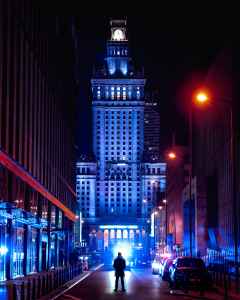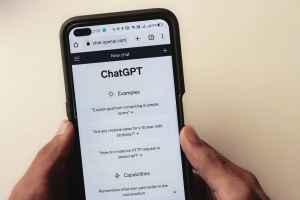Unveiling the Nexus of ChatGPT and the Literary Realm: A Journey into the Future of Storytelling
Introduction: The Dawn of a Transformative Era
The literary world stands at the precipice of a profound transformation, ushered in by the advent of ChatGPT, an AI-powered chatbot that has ignited a paradigm shift across diverse industries. As ChatGPT’s capabilities continue to expand, a captivating narrative unfolds, intertwining the realms of technology and creativity. Questions abound regarding AI’s impact on creative writing, its potential to enhance literary expression, and the evolving role of human authors in an AI-infused literary landscape.
The recent news of Japanese author Rie Kudan’s triumph at a prestigious literary award ceremony has thrust the debate over AI’s role in literature into the spotlight. Kudan’s book, “The Tokyo Tower of Sympathy,” emerged victorious, carrying the distinction of being partially generated by ChatGPT. This revelation has sparked a dynamic discourse, inviting scrutiny, admiration, and a collective contemplation of the future of storytelling.
Rie Kudan’s Literary Journey with ChatGPT: A Fusion of AI and Human Creativity
Rie Kudan, an acclaimed Japanese author, has boldly embraced the transformative potential of AI in literary creation. During her acceptance speech, she openly acknowledged ChatGPT’s significant contribution to her award-winning book, expressing her gratitude for the AI chatbot’s assistance and her conviction in the power of AI to augment creative expression.
Kudan revealed that approximately 5% of her book was generated word-for-word by ChatGPT, aligning seamlessly with the book’s central theme of AI integration. She also shared her practice of consulting ChatGPT on personal matters, finding solace and inspiration in the AI’s insightful responses. Kudan’s journey exemplifies the harmonious fusion of AI and human creativity, highlighting the potential for AI to serve as a catalyst for innovative storytelling.
Diverse Perspectives: The Literary Community Responds
The news of Kudan’s AI-assisted writing elicited a symphony of reactions within the literary community, reflecting the ongoing debate surrounding AI’s role in creative endeavors. While some authors, such as Keiichiro Hirano, a member of the prize committee, expressed acceptance and understanding of Kudan’s approach, others voiced concerns about the implications of AI’s growing influence on literature.
Notable authors, including George R. R. Martin, Jodi Picoult, and John Grisham, joined forces in a class action lawsuit against OpenAI, the company behind ChatGPT, alleging copyright infringement during the training of AI systems. A group of over 10,000 authors, including literary luminaries such as James Patterson, Roxane Gay, and Margaret Atwood, penned an open letter urging AI industry leaders to respect authors’ consent and advocate for fair compensation when using their works to train language models.
The debate continues to revolve around the ethical considerations of using AI-generated content, the potential impact on the value of human creativity, and the urgent need for guidelines and regulations to ensure fair practices in AI-assisted writing.
Exploring the Ethical and Creative Implications: A Delicate Balance
The rise of AI assistants like ChatGPT challenges traditional notions of authorship and raises ethical questions about the extent to which AI’s contributions should be acknowledged and compensated. Concerns arise over the potential for AI-generated content to become indistinguishable from human-generated content, blurring the lines of originality and authenticity.
The debate extends to the creative process itself, as some argue that AI’s assistance diminishes the value of the author’s unique perspective and emotional investment in the work. However, proponents of AI-assisted writing contend that AI serves as a tool that can augment creativity, aid in research and fact-checking, and facilitate the exploration of new ideas and perspectives.
The ongoing discourse centers on striking a balance between embracing AI’s potential to enhance creative expression while preserving the integrity and authenticity of human-generated literature.
Future Outlook: AI as a Collaborative Partner in Storytelling
As AI technology advances, the relationship between AI and human authors is poised to evolve towards a collaborative partnership. AI’s capabilities can complement and enhance human creativity, offering assistance with tasks such as generating ideas, conducting research, and analyzing data. The integration of AI in the writing process may lead to the creation of hybrid works that seamlessly blend human and AI-generated content.
The focus may shift from debates over the legitimacy of AI-assisted writing to discussions about the most effective ways to leverage AI’s strengths while maintaining the unique contributions of human authors. Collaborative efforts between AI and human authors could lead to innovative storytelling techniques and the emergence of new genres and forms of literature.
Conclusion: Embracing a New Era of Storytelling
The intersection of ChatGPT and the literary world marks a pivotal moment in the evolution of storytelling. As AI technology continues to advance, its impact on literature will undoubtedly be profound. Whether it’s through collaborative partnerships between AI and human authors or the emergence of new forms of storytelling, the future of literature is brimming with possibilities.
As we navigate this uncharted territory, it is imperative to foster a spirit of open-mindedness, embrace experimentation, and engage in thoughtful discussions about the ethical and creative implications of AI-assisted writing. By doing so, we can shape a future where AI and human creativity coexist harmoniously, propelling literature to new heights of innovation and expression.






